Stoking Unbearable Memories against Forgetting: Reading Kundera’s Works from a Different World
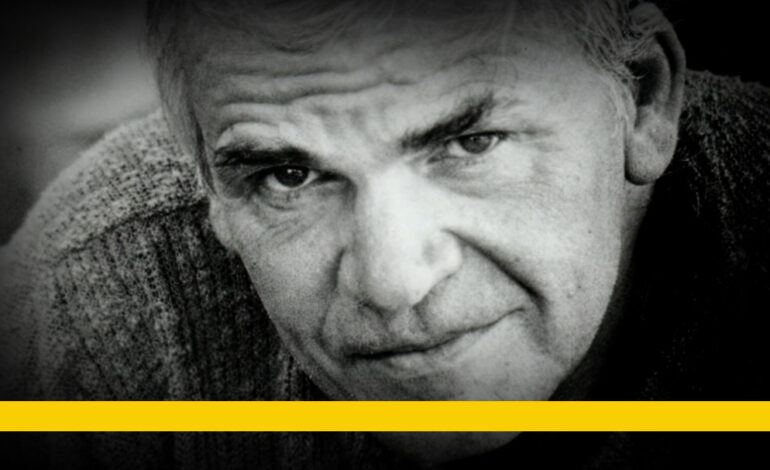
Milan Kundera was part of my youth and growing up, and I toted his works and held on to them as if my life depended on them. During my post-graduation, I lived through his novels, empathized with his female characters, and slipped into the glum of existential angst throttling me from my imagined reliving of his books. Often, I walked under the shadow of his graphomania, entangled or surrounded “with his own writings as with a wall of mirrors cutting off all voices from without.” Significantly, Kundera often talked about being immersed in ‘alien cultures’ and the theory of two civilizations and the essential conflict between them. While he argued for the cultural significance of then Czechoslovakia in the contemporary age, he believed that his country was “culturally in the West and politically in the East” and resented being bundled off as part of the Western civilization. I, too, weighed under the heaviness of cultural alienation, a small-town Malayali girl, weighed down by the distant gloomy chimes of the death knell of the Prague Spring in a far-away time; and, almost intellectually titillated by it, I was enamoured with a novelist who defied all categorizations thrust on him. In an interesting anecdote, when The Joke (1967), his first novel, was simplistically dubbed as “an epitome of the utter denunciation of the Stalinist regime,” Kundera protested with his razor-edged vehemence. “Spare me your Stalinism, please. The Joke is a love story!”
Incidentally, I picked up The Joke from a lending library, misled by its title. I searched for the joke throughout the book as I realized it was the story of Ludvik, who was still a grudging fan of the ‘still-young Communist regime.’ During his summer break, a girl in his class wrote to him about “optimistic young people filled through and through with the healthy spirit” of Marxism; he replied, “Optimism is the opium of mankind! A healthy spirit stinks of stupidity! Long live Trotsky!” It is evident that Kundera pursued laughter and humour rigorously and persistently in many ways than one. In The Joke, The Book Laughter and Forgetting (1979) and Laughable Loves (1974), he explored the gruelling semantics of black humour, piecing together the jarring elements of history, philosophy, broken love affairs, unconsummated sexuality and personal reflections, through the narration of social commentary and existential contemplations. In these novels, as in most of his other works, through individual and collective memories, the complexity of relationships, memory and forgetting, political repression, love, and the nature of laughter flock together as reflections on human conditions.
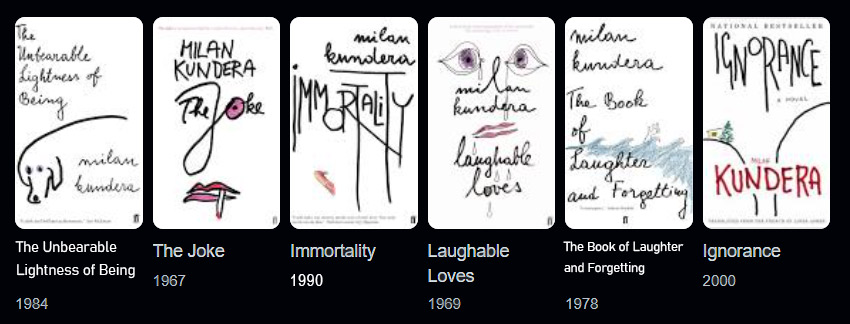
Ironically, in his extended treatise on modern aesthetics, Testaments Betrayed (1993), Kundera observes, “If I were asked the most common cause of misunderstanding between my readers and me, I would not hesitate: humour”. Referencing Octavio Paz, he believed, humour is the great invention of the modern spirit” and by claiming that this humour’s birth, coinciding with that of the novel in Rabelais and Cervantes, is absolutely fundamental to modern European culture. Milan Kundera believed that his stories led to a fresh approach to specific knowledge of life. On the other hand, he also argued that “the novel doesn’t answer questions” but leads the reader to reread and find new surprises every time she reads.
The novel never provided an absolute truth for him. Instead, he defined the genre as “the great form in which the author thoroughly explores some great themes of existence, using experimental selves (characters).” But he often wrote them as “wisdom of uncertainty”, especially like many other writers like Kafka, Broch and Hasek, who were ardent adversaries of totalitarian truths, and peppered their writings with ‘irreverent truths.’ Kundera was also obsessed with the concept of betrayal, both in literature and in real life became manifested in artistically different forms, such as political, artistic, and personal betrayals. Kundera examines various historical events and figures, drawing connections between their actions and the theme of betrayal.
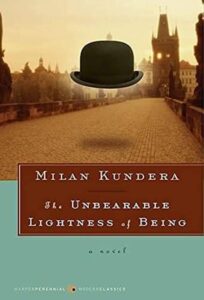
Interestingly, while Kundera loosened the knots of conventionality, he simultaneously rebuilt nihilistic, self-destructive meanings with the same vigour. Sometimes, inter-genre interference of music can be read into many of his works. The Book of Laughter and Forgetting and The Unbearable Lightness of Being can be read as polyphonies or musical interfaces where the narrator’s and the characters’ voices fuse into a mixture creating new strains of non-linear meanings.
Kundera’s treatment of ‘sexuality in his novels’ had elicited strong and unfavourable responses over time. For him, sexuality is a microcosm of power struggles, almost always involving the dominance of one person over another, of strength over weakness. There’s nothing personal or pleasurable in sexuality; in The Joke, Ludvik’s pursuit of Helena is an expression of his desire for revenge against Zemánek, but his sexual tyranny is equated as brutal as that of the Communists, and the reader becomes increasingly uncomfortable about Ludvik’s obsession with violating women. Kundera’s outspoken sexual narratives satirize the taboos and individual prejudices regarding sexuality. He effaces the spaces of sacred and profane with his erotic descriptions and non-apologetic violence in sexual engagements and, sometimes, collision. Out there, the personal and political are closely knit, and the comic sexual faux pas are tied to the extensive struggles of the state, where the state suffers a similar, ridiculous predicament. Interestingly, since the same impulses and ambitions underlie public and private life, Kundera argues that the personal and the political cannot be separated as distinct entities. In his words, “Politics unmasks the metaphysics of private life; private life unmasks the metaphysics of politics.”
Milan Kundera has been criticized for the excess of violence and misogyny in his novels. Critics like John O’Brien exposed the strands of misogyny in his novels in caustic terms. He wrote, “Kundera might see himself as a paradoxical, post-structural, or an eroticist exploiting the taboos proliferated by cultural stereotyping”, and at the same time, he critiques Kundera for ‘types’ of women portrayed ad-nauseum in his novels. His vignettes of women are often fragmentary and often couched in the patriarchal idealism that is unconsciously built into his works. The erogenous bodies of women and the brutal violence perpetrated on them in his novels were also subjected to bitter criticism.

Kundera consistently rallied laughter and satire against the grim realities of the history of persistent repressions and subjugations Czechoslovakia had undergone for ages. Before the World War, the country wilted under the iron boots of the Austro-Hungarian empire and was eventually invaded by Hitler during the Second World War. Once liberated from German occupation by the Red Army in 1945, the country formed alliances and fell apart under the instability of the coalition till the Communist Government completely took over in 1948. After twenty years of an oppressive Communist rule, Czechoslovakia saw the brief dalliance of liberalism and humanity in the euphoria of the “Prague Spring” whipped up under the leader Alexander Dubcek, the General Secretary of the Community party, in 1968. But the uprising ended disappointing, as Dubcek and his followers were under duress and forced to sign a treaty which meant the end of reform. Along with the moment begins “the struggle of man against power”, which is synonymous with “the struggle of memory against forgetting.” (The Book of Laughter). He adds that the Prague streets were haunted by the ghosts of “moments demolished – demolished by the Czech reformation, demolished by the Austrian counter-reformation, demolished by the Communists.” In an autobiographical account, “The Angels”, Kundera confessed his entrapment in the initial days of Communist euphoria. “I, too, danced in a ring. It was the Spring of 1948. I took other students by hand… and we took two steps in place, one step forward… and we did it just about every month., there being always something to celebrate, an anniversary here, a special event there, old wrongs righted, new wrongs perpetrated, factories nationalized, thousands of people jailed… and we smiled the smile of happiness.”
Exiled to France in 1975 for forty years, the writer never hesitated to fathom the deep and existential questions — “the lightness/weight opposition is the most mysterious, most ambiguous” — and wrote with a relentless indictment against totalitarianism, “The struggle of man against power is the struggle of memory against forgetting.” Interestingly, his writer’s journey, hemmed into interesting phases, voiced the totalitarianism of the state (The Joke), unleashed a direct attack against the Communist regime (The Book) and slowly metamorphosed to political narratives under the gossamer veils of allegorical subjectivity (Identity, Immortality). However, his last novel, The Festival of Insignificance (2014), talked about four men bumping into each other, recounting anecdotes, their mothers, narrating philosophical and playful conversations, and received mixed reviews.
Years later, in1990, following the Velvet Revolution and the fall of the Communist regime in Czechoslovakia, Kundera was invited back to his home country, though he declined and remained in France. At ninety, in a touching, symbolic gesture, his Czech citizenship was revoked, eliciting the author’s tongue-in-cheek response. “”All I know is that before I left, I was terrified of ‘losing home’ and that after I left, I realized — it was with a certain astonishment — that I did not feel loss, I did not feel deprived.”
Twenty-five years later, at the news of Kundera’s death, I was again taken back to memories of my small-town world where I was grieving the rise of a totalitarian regime and the fall of liberalism and human rights in a distant country. Back home, though I was deluded by the ideals of democracy, Kundera’s novels evoked the horrors of fallen optimism and the stories of totalitarianism where oblivion aces over memory as the only strategy to survive. The red flags of human suffering swept over the borderlines of the nations and reached out to me and the readers worldwide echoing Kundera’s words, “The Czech anthem begins with a simple question: ‘Where is my homeland?” The homeland is understood as a question. As an eternal uncertainty.” The world’s tribute to the great writer is in remembering the fact that between the effaceable lines of certainties and uncertainties, laughter and tears, memory and forgetting – some great stories were told, pickled in the horror of laughter.


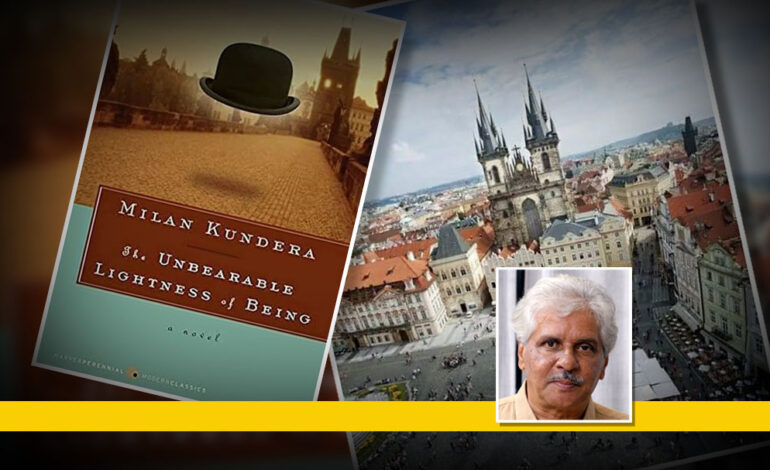
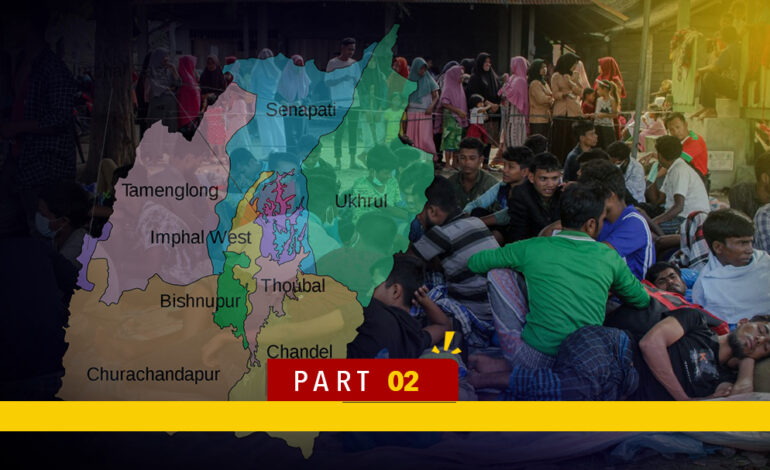








Thank you for this informed , riveting recall of how Kundera lived in the many lives of student , woman and reader ., salaams Babita , salaams Aidem